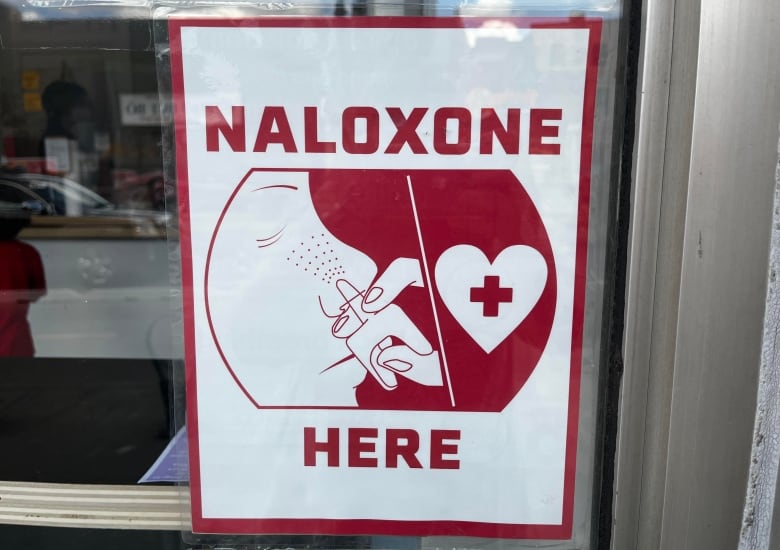Local, provincial health officials warn animal tranquilizer is being cut into opioids
Animal tranquilizer xylazine can can lower heart rate, blood pressure and breathing

Experts are saying an animal tranquilizer called xylazine, also known as tranq, is being cut into opioids like fentanyl.
Ontario's chief medical officer and chief coroner said xylazine and benzodiazepines, a class of prescription drug used to treat things like anxiety, seizures, panic attacks, are being cut into unregulated substances.
"Xylazine and benzodiazepines do not respond to naloxone administration," they wrote in a February email.
The Windsor-Essex County Health Unit (WECHU) issued a warning the public about xylazine in drugs after 11 patients were admitted to hospital in the last week of February for overdoses.
Eight of those overdoses were from fentanyl, though the health unit did not say if xylazine was present in any of those cases.
"Currently, the Windsor-Essex County Health Unit does not have the data to indicate the degree to which those substances are in the local street supply," a spokesperson for the WECHU said in a statement.
During a board of health meeting on Jan. 20, acting medical officer of health Dr. Shanker Nesathurai said the health unit will be focusing on the region's high number of opioid overdoses and deaths.
Substance users likely don't know they are taking xylazine
Patrick Kolowicz, director of mental health addictions for Hôtel-Dieu Grace Healthcare in Windsor, said xylazine suppresses the central nervous system and, like benzodiazepines, can increase the chances of overdose.
"You can't tell what's in a pill or in powder, so you're left with that uncertainty... you don't know exactly what's in there," he said.
The Toronto Drug Checking Service sent Kolowicz and his team a notice that it tested 115 fentanyl samples between Feb. 11 and Feb. 24, 2023 and found 75 per cent of the tested substances contained xylazine or benzodiazepines.

"We're not usually dissimilar to Toronto. What they're seeing in Toronto is probably what they're seeing in Windsor," he said.
And for fentanyl users, Kolowicz said the risk of overdose is already higher than average.
"You look at fentanyl, it's much more potent than morphine and heroin combined, and so if you start getting into substances like this where it's such a small quantity that can produce such a large effect, people's lives are at risk."
Fentanyl easiest opioid to access during relapse
Windsor addictions specialist, Dr. Tony Hammer, said he hasn't heard much about the drug, but said ketamine, another animal tranquilizer used recreationally, has a similar effect.
"Anything that changes mood upwards, downwards or anything a drug addict finds attractive, and some drug dealers will find a market for it," he said.
Hammer said the biggest problem with his patients is the high rate of accidental overdoses from fentanyl use. He said one of the main contributing factors is that it is readily available for people relapsing.

"My patients are all telling me that if they get if they relapse and they need an opiate in the middle of the night, they go on the street.
"The easiest opiate to get hold of is fentanyl."
Kolowicz said opioid users who relapse are more likely to have an overdose because their systems are not accustomed to the potency of the drug when they stop using for a period of time.
And Kolowicz said the danger is especially high for teens and youth who aren't used to taking substances, or don't know what it is they are taking.
"Maybe they think it's something completely different, but because they don't know and because they're naive or their livers aren't used to handling substances to that magnitude, unfortunately that could result in overdose."
With files from TJ Dhir